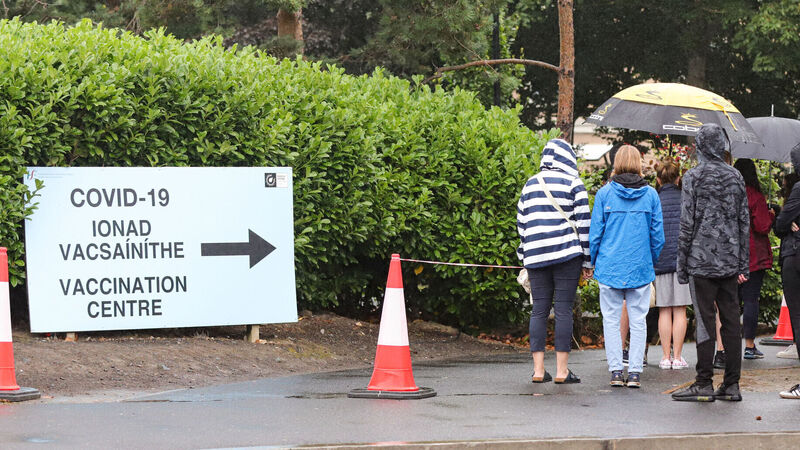Alison O’Connor: All involved in vaccine rollout deserve a massive pat on the back

Parents and their children queue in the rain outside the Citywest vaccination centre in Dublin.
There isn’t too much around to give you a warm fuzzy feeling at the moment. But the exceptional uptake of Covid vaccinations among people in Ireland is a bit of an uplift banker.
The numbers are breathtaking. According to the most recent HSE statistics 82% of adults have been fully vaccinated and 90% partially. Statistics from the European Centre for Disease Control this week show that our uptake in vaccines among adults over 18 is second only to Malta.












